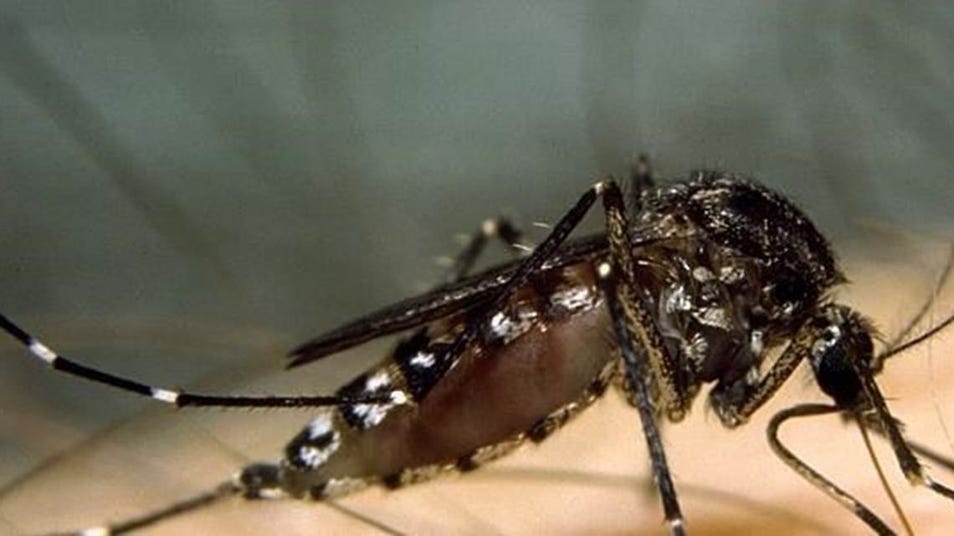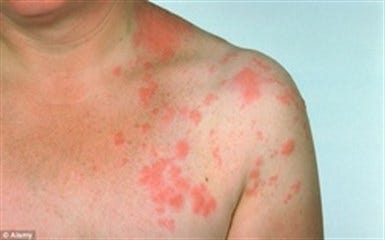ROSS RIVER FEVER

This article contains general advice only and is not a substitute for medical advice. Always seek a professional health care opinion.
ABOUT ROSS RIVER FEVER
Ross River Fever is a viral illness, caused by an infection submitted through mosquito bites. It is classified in a group of viruses called arboviruses, which are spread mainly by the bite of infected mosquitos. The virus was first identified in mosquitoes collected near Townsville’s Ross River in Queensland, but cases have been recorded in all states of Australia.
Where does it occur?
The disease is most common in Australia from January through till May, when mosquitos are most abundant. About 5000 people are recorded as being infected with the virus in Australia each year, with infections most commonly occurring in rural areas of NSW. People living in warm, humid climates near bodies of water will be most at risk of infection, particularly those in contact with known mosquito habitats. This is because local conditions of rainfall, tides and temperature promote mosquito breeding.
What are the symptoms of ross river fever?
Symptoms usually appear within five to fourteen days of being bitten by an infected mosquito. They can include:
flu-like symptoms such as fever, chills, headaches and aches and pains in the muscles and joints
swollen or stiff joints
general feelings of nausea, fatigue or weakness
rash on the body, arms or legs

The majority of people will completely recover within six weeks. Others may experience symptoms such as joint pain or tiredness for months.
However, many people (particularly children) will never actually develop symptoms.
What causes ross river fever?
The Ross River virus is not contagious and is only spread by mosquitoes. The virus typically lives in native mammals such as kangaroos and wallabies, but can also be found in rodents, bats and horses. Certain types of female mosquitoes will contract the virus if they feed on the blood of an infected animal. The virus then multiplies within the mosquito and is passed to other animals or people when the mosquito feeds again.
Once the virus enters the human bloodstream, it reproduces itself in blood cells and builds up in the muscles, joints and skin, which leads to the symptoms of infection.
How do you prevent ross river fever?
A vaccine to prevent infection from the Ross River virus has been developed, but is yet to be licensed.
Protecting yourself and your family from mosquito bites is critical in preventing disease.
Avoid known mosquito-infested areas, particularly at dawn and dusk when mosquitoes are most active
When outdoors, cover as much skin as possible with light-coloured, loose fitting clothing and covered footwear
Use an effective repellent on all exposed skin, and be sure to reapply regularly as protection wears off from perspiration
Cover your clothes with repellent as mosquitoes can bite through material
Use mosquito coils outdoors and vapourising mats indoors
Cover all windows, doors and vents with insect screens
Use screened tents when camping, or sleep under a mosquito net
How do you treat ross river fever?
Unfortunately as there is no specific treatment for the virus, doctors can only advise on treatment to relieve symptoms such as aches, pains or swelling. These treatment methods may include aspirin, plenty of bed rest, and avoiding alcohol and excessive physical activity.
Sources:
http://www.abc.net.au/health/library/stories/2006/01/19/1831791.htm
https://www.health.nsw.gov.au/Infectious/factsheets/Pages/ross-river-fever.aspx
http://theconversation.com/explainer-what-is-ross-river-virus-and-how-is-it-treated-37889
Disclaimer: Mortein does not make any warranty that by using these products you will not contract the diseases referred to in this site. Use Mortein as part of a complete preventative plan and please still take caution. Seek a medical professional for further advice in regards to the above, especially if visiting prone areas.
